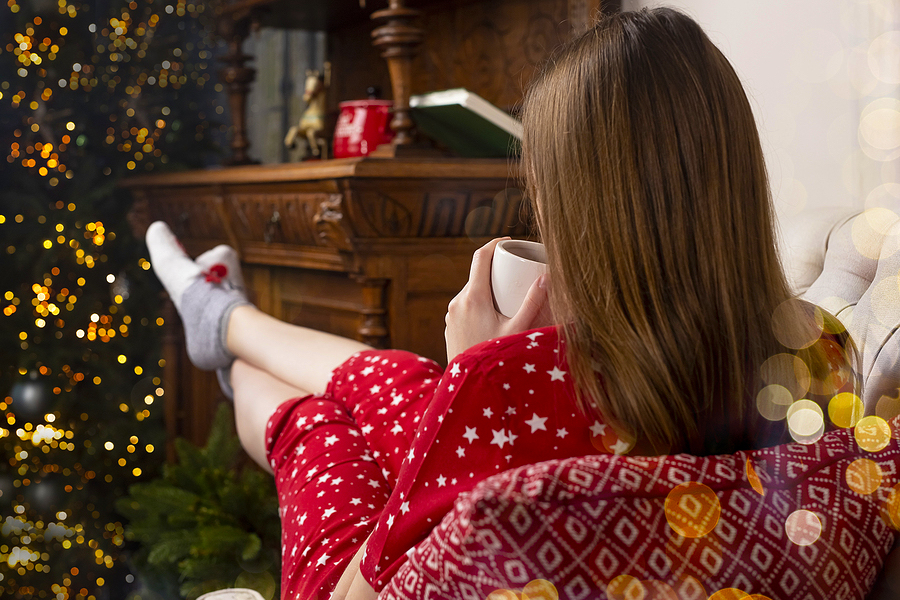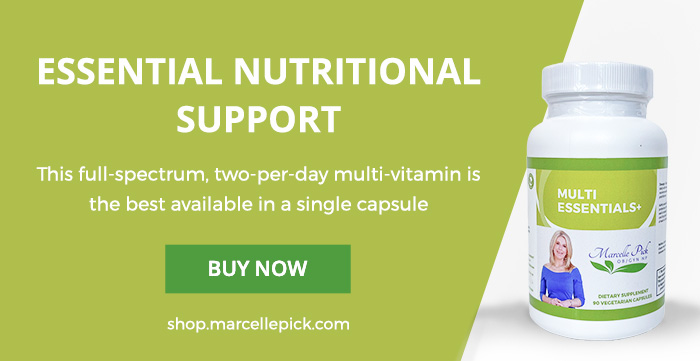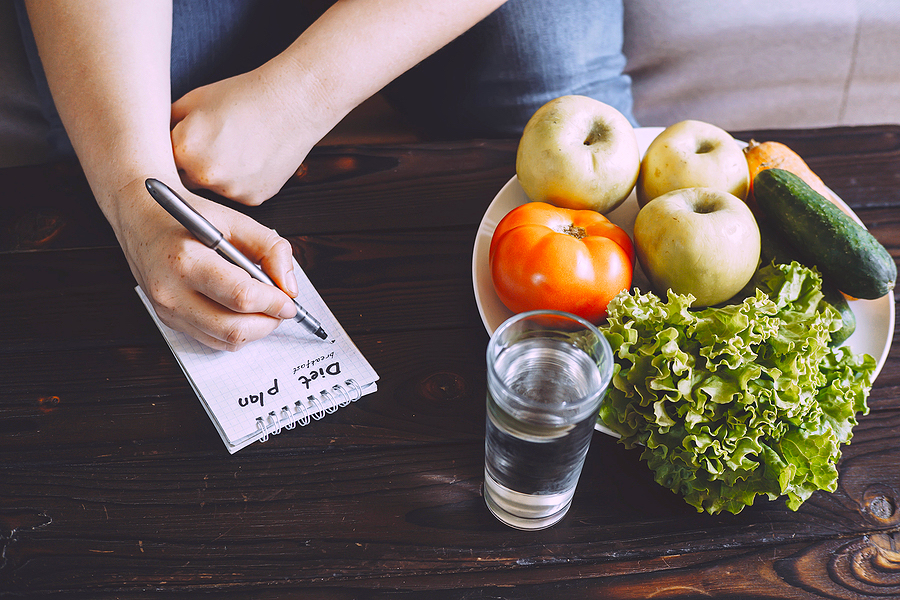Updated: Nov. 26, 2023
Where does holiday stress come from for women – and how can they make it through the holiday season happier and healthier?
“Thanksgiving was insane. I have NO idea how I’ll make it through the rest of the holiday season!” That’s what my friend Jamie said when we met for tea this weekend. Her story of the stress-filled day poured out; she’d had to clean the whole house, plan and execute all the cooking, and keep the peace between her volatile family members during dinner.
She said hosting family holidays used to be a source of joy, but this year she barely had a moment to enjoy it. And now, she was looking at the month between Thanksgiving and Christmas with trepidation, fearing it would be even worse. “If this stress doesn’t let up, I can’t do it. I’ll just collapse!” she said.
Jamie’s story isn’t unique. Every year, between Thanksgiving and Christmas, I hear from so many women looking for help in managing physical manifestations of stress. Heavy or irregular bleeding, depression, or menopause symptoms have roared back to life again, and they have no idea why – or what to do about it. Luckily, I know exactly what’s going on. It’s all about stress and the toll it takes on your body.
I’m sure you can think of at least one person in your life who, without fail, gets sick every Christmas. Are you concerned that this year, with increased responsibilities and so little time, it just might be you?
The good news is, it doesn’t have to be! You have the power to design your holidays differently. This may be the perfect year to make some big changes, choosing traditions you love and want to continue while letting others go. When you do so, you’ll leave constant stress and chaos behind, and you can truly enjoy the season with your closest friends and family.
Where does holiday stress originate?
How do so many women find themselves in this place? Often, it’s a combination of history, guilt, depression, expectations, and a jumble of emotions that run high during the holiday season. Let’s take a quick look at some of that, then I’ll give you some practical tips on avoiding the holiday stress trap.
The power of the past
With more than three decades of experience, I’ve spoken to thousands of women about this very issue. And I’ve also experienced it myself as a wife, daughter and mother. The most important thing I’ve learned about holiday stress is that it typically comes from our own personal histories and how we respond to them.
We have so many choices – and so many coping mechanisms. Some are healthy. Others…not so much. So often, we coast through the season, doing what we’ve always done, never stopping to think about the choices we are making. That can lead us into habits that have a serious impact on health, including overindulging in alcohol, overeating, endless shopping trips, decorating the house, and managing invites. We need to STOP repeating past mistakes!
Studies have proven without a doubt that past emotional experiences impact our health. This becomes more obvious during the holidays when so many of us try to incorporate family tradition — or lack of one — into our own holiday. I’ve told my own story of striving for Christmas perfection and what it did to my health in an article about fighting holiday depression. In that article, I also shared how I was finally able to overcome it and reduce the stress I felt during the holiday season.
Redemption and codependency
Women are so hard on themselves, and never more so than at this time of year. They treat this season as a time to make up for all the disappointments of the year, or a time to redeem any perceived shortcomings.
We skip going to our place of worship all year, but make it an absolute must to show up on high holy days. We reach out with holiday cards to people we haven’t actually spoken to in years – maybe decades! We buy expensive gifts, bake cookies for the neighbors, make gingerbread houses with the kids, adorn our homes and entertain ferociously.
And we cram all this into 30 days without much help from others. It’s as if we’ve decided to stage an extravaganza for a large audience with only one stagehand — and that’s us!
We have to stop and realize that it’s NOT our sole responsibility to create an idealized holiday experience. When we do everything alone, we end up feeling all alone. This can manifest itself as resentment and bitterness towards the very people for whom we are putting on the show.
Inherent in this is a kind of codependency — a sense that in some way we are responsible for everyone else’s happiness. Women are conditioned from birth to think of others before themselves. As a result we tend to lose sight in adulthood of where we end and our loved ones begin.
This is why knowing yourself and asking for help when you need it is so important. Moreover, allowing others to help (even if they don’t do something the same way you would) paves the way for the holidays to become a time of happy collaboration.
Holiday depression
Death, divorce, absent loved ones, empty-nesting — these experiences create feelings of grief, sadness or loneliness that may seem out of place during the holidays. Most of us have had at least some happy holidays in our lifetime, and those tend to be the ones we long for when they’re gone.
The past few years have been hard! We missed out on so many things during the pandemic, and even though we’ve resumed “normal life” for the most part, the sense of loss may still linger. Holiday traditions may be forever changed, and that can be tough to process.
It’s important to honor those feelings rather than trying to suppress or ignore them. Make time to remember lost or absent loved ones and enjoy fond memories. Trying to push those feelings away may lead to compensating behavior like eating or drinking too much.
Emotions and stress
Emotions and memories can be a major source of stress, and this time of year, both surface constantly.
Both physical and emotional stress trigger a release of cortisol and adrenaline from the adrenal glands. Confirming what all of us have known instinctively for years, a 2004 study by scientists at UCSF documents the link between psychological stress and aging at the cellular level. Women who experience a lot of stress show measurable signs of premature aging: weaker immune systems, higher levels of free radicals and shortened telomeres (the caps of DNA at the ends of chromosomes that determine cell life). In the women with the greatest stress, their telomeres resembled those of someone ten years older than their chronological age!
So it’s no wonder that we feel lousy when stress rises during the holiday season. This is especially true if you’ve never actually dealt with the emotions of the past.
Holiday stress and hormonal balance
Think of your hormonal balance like a teeter-totter: on one side are the demands you make on yourself, on the other are the support mechanisms you have in place. The stress of the holidays is like throwing a 100-pound weight on the demand side.
If you’re not yet familiar with the ways in which your body responds to hormonal imbalance, I encourage you to read my articles on hormonal health. You’ll see that when your hormones are out of balance, the effects are pervasive. Fortunately there is a lot you can do to restore hormonal balance, even during times of holiday stress. The first step is to identify the relevant factors that are affecting your own hormonal balance.
Sources of holiday stress — the demand side
In addition to emotional factors, some of the common external sources of stress that affect our hormones during the holidays are:
- Poor nutrition: Holiday parties, office noshing, cookie-swaps, and sugary gifts all contribute to a big spike in simple carbohydrate intake. This can throw our metabolism off kilter and lead to intense mood swings, digestive upset, weight gain, and increased insulin insensitivity. Many women accumulate most of their adult weight gain during the holidays — a few pounds each year that they never lose.
- Lack of sleep: With so much to get done, we throw ourselves into a vicious cycle of staying up late, boosting daytime energy with caffeine and carbs, feeling better and taking on more, then staying up late again. But the resulting lack of sleep has big health consequences!
- Alcohol use: So many women I know think indulging in eggnog or champagne as a rite of the holidays – and tend to overdo it. Wine, in particular, contains a lot of sugar. Alcohol is a depressant, even though it initially triggers a gush of serotonin that makes us feel happy and relaxed. When those serotonin levels recede, we crash. This sets up another binge-and-crash cycle, just like with lack of sleep. And alcohol can impact quality of sleep, dehydrate, and inhibit healthy liver function, all of which skews hormonal balance.
- Lack of exercise: Skipping your morning walk because you stayed up too late or passing on the gym to get some shopping done undermines a significant source of support for your body. At the very time when we most need to get (and stay) moving for an energy boost, a lot of us put exercise on the back burner and rely on caffeine and sugar to keep us going.
- Time/money management: In trying to make our inner holiday movie a reality, we tend to fill up all of our available time with errands and obligations. Some of us throw our budget to the wind. All of this can impact the adrenals, insulin levels, and impede brain function.
Avoiding Holiday Stress — The Supply Side
Now for the good news! We all learned how to slow down a little in the past few years (though maybe not by choice), and we can hold on to some of those simplified traditions. Maybe it’s already happened; did you eliminate an event that you didn’t really miss during the pandemic? Where else can you cut back? Below are some suggestions that might help.
- Examine your inner holiday “movie”. Think about what made your family traditions (or lack of them) so influential. Acknowledge their importance, then choose one or two that mean the most to you and let others go.
- Be present for your loved ones. Undistracted attention is the most precious gift you can give. Embark upon a cookie-baking afternoon, decorate a gingerbread house, or enjoy a holiday movie together. Turn off the phone, put away the to-do list and have fun with the ones you love the most.
- Delegate responsibility. Remember that this is supposed to be a time of joy — for you as well as your family. Include members of your family or friends in your tasks. This will show them that you want your holiday to be a joint effort and alleviate any feelings of resentment and anger.
- Plan ahead. Shopping early, freezing meals, and wrapping presents ahead of time are all good ways to relieve pressure. And when you do most of the holiday tasks early, you can really focus on family and friends.
- Incorporate some of the spiritual aspects of the holidays into your life. Even if you aren’t religious, listening to a sermon, watching a holiday pageant, singing hymns or lighting candles can be a comforting way of opening yourself up to the more profound joys of the holidays.
- Reach out to others. The best way to feel connected is to get connected. Check on a neighbor, pack a food box for a family in need, or find a way to liven up the community (maybe caroling, or a hot cocoa block party).
- Communicate. If you are having a hard time or feel overwhelmed with other people’s expectations or the commercial aspects of the holidays, find someone to talk to. If you can’t turn to a friend or family member, there are many counselors and clergy people who are available for temporary counseling during the holidays.
- Make time for yourself. Take 15 minutes each day to do something just for you. Read a poem, take a bath, sit quietly, breathe and meditate, or do some simple stretches. Tune into your body and your emotions, and give yourself some well-deserved love and nurturing.
- Eat well and often. There’s no need to deny yourself your favorite holiday treats, but stock up on healthy choices in between. Don’t skip meals because you overindulged the day before. Eat protein and a serving of vegetables or fruit at every meal and snack. Drink a lot of water to help your body detoxify. Holidays are one day events — you don’t need to go on a month-long binge!
- Take a complete multivitamin. This is especially important this time of year, when your inner resources are depleted.
- Get enough sleep and exercise. As I said before, both are integral to good health, so find ways to protect them as much as possible.
- Limit alcohol. Reserve alcohol for very special occasions. Alternate an alcoholic drink with sparkling water at parties or holiday dinners. Avoid eggnog, holiday punch, and champagne because of their high sugar content.
- Fight the urge to spend indiscriminately. Think about the favorite gifts you’ve received. It’s likely they weren’t the most expensive, but the most meaningful! If you don’t leave everything until the last minute you can take your time to create a unique handmade gift or treat. Or, shop wisely and purchase an item that truly reflects your relationship with, or the desires of, the recipient.
It’s all about how you feel
As Jamie and I talked, she visibly relaxed her shoulders and let out a deep breath. She understood that she’d been putting way too much pressure on herself – and with my help, she identified some things she could let go.
You can do that too! The most important thing is to listen to your body and tune into your emotions instead of letting old internal scripts take over, especially during the holidays. Balance is a year-round goal; it’s just harder to maintain it through the holidays. But when you do, you just may find yourself as cheerful and radiant as the holiday lights!








